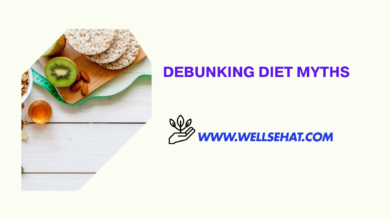Gut Microbiome and Mood The Connection Between Diet and Mental Health
Speaking of the newest tendencies, people have come to regard the connection between their guts and brains as crucial. Decades ago anyone interested in the concept of holistic health would have already known that there exists a close relationship between the mind and the gut but scientists are finally starting to discover how deep this relationship can be. Gaining insight into the link between gut microbiota and mood is not only interesting; it is also important for everybody who is interested in the ways of improving mood through food.
What is the Gut Microbiome?
We distinguish here the gut microbiome as a unique community of microorganisms that includes bacteria, fungi, viruses, and other microbes belonging to every member of the large human family, all living in our gastrointestinal tracts. These microbes are important to our well-being, affecting digestion, the immune system, and increasingly the brain.
A well-functioning digestive tract is characterized by the presence of a large group of healthy living bacteria to aid in digestion and fight off other unhealthy bacteria. However, if the amount of these beneficial bacteria experience a shift, that is, if there is dysbiosis, several health problems may arise, including anxiety and depression.
The Gut-Brain Axis
The GBA is a two-way interaction plan between the gastrointestinal system and the head of the body. This kind of linkage enables gut health to determine our mental health and the other way around as well. Contacts between the two are done through the vagus nerve, neurotransmission, and immune reactions.
They have found out that, gut bacteria create neurotransmitters like serotonin which the common name for is the happiness hormone. In fact, up to 90% of the body’s serotonin is said to be produced in the gut. This heartened my understanding of the various disorders that are associated with serotonin levels that are produced by an unnatural balance in the gut bacteria.
Diet’s Role in Gut Health
You must have heard this probably once or more in a lifetime “You are what you eat”. Well, the same is the case when we talk about Gut Health. A diet rich in fiber, fruit, vegetables, and other fermented fruits is known as the best diet for better gut health. Your diet can influence your gut health so make sure to make better choices.
Take probiotics, since they have bacteria that are beneficial like in yogurt, kefir, sauerkraut, and kimchi. These foods can help for better gut health improve mood and also reducing anxiety.
Omega fatty acids are also good for your health. Fruits that contain omega fatty acids are garlic, onion, bananas, and other whole grains.
Read More… Exploring the Connection Between Nutrition and Mental Health
The Role of Stress and Lifestyle
Aside from the diet which is one of the crucial aspects of general health and the health of the gut in particular the role of the living condition also is fully significant in the gut-brain connection. Lack of sleep, stress, and lack of mobility can affect the microbiota which in turn affects one’s mood further.
Stress reduction activities like meditation, stretching, and exercises like yoga help reduce the levels of stress and can be beneficial to take care of the gut. Furthermore, if you target to promote proper sleep, as a component of sleep hygiene, then it will be beneficial to the gut and mental health as well.
The Future of Mental Health Treatment
This evolving view of the gut-mind axis brings a fresh perspective to the use of the individual’s physical health in the treatment of the patient’s mental health. While $2 billion is spent annually on therapy and medications separately, integrating dietary changes along with probiotics could help in developing an extra-faceted strategy.
There is current research being conducted to try to determine how gut health can be harnessed in managing such diseases as anxiety and depression. With the increasing growth of research, what goes inside our stomachs is just as important as what goes inside our minds.




